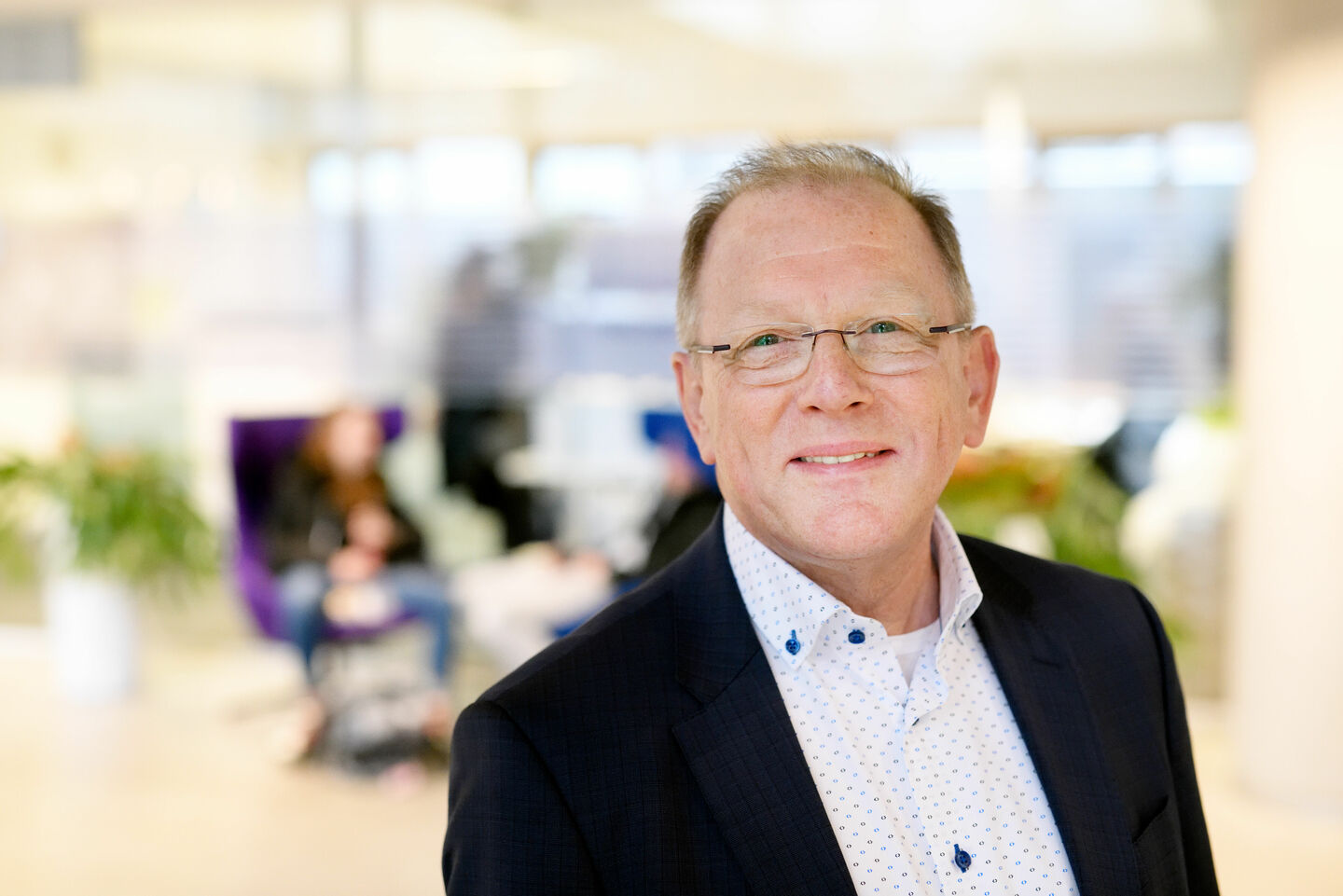
Ton Backx never stops innovating
With tongue in cheek you could say that professor Ton Backx is a habitual offender - but then in a positive sense, because this professor at the Control Systems group and former dean of Electrical Engineering is an inexhaustible and tireless source of innovation. “I am a pioneer through and through, I enjoy setting things up and driving them forward, especially with young people.”
It has been a slightly strange week, Ton Backx (65) explains at the start of the interview. “Passing on work to others, completing things, preparing to leave. I've always said that professors should step aside when they reach retirement age to make way for a younger successor. It's how you give new ideas the chance to blossom. The university needs the buzz and crackle of new energy. So now it's my turn to set a good example.”
But stopping work and bidding farewell to the university where he studied, gained his doctorate and ultimately became a professor and dean is something Backx isn't ready to contemplate. “This keeps me young, being surrounded by students, I'm going to miss it. But I'm not leaving entirely. I'll come back in another role.” Exactly what role, he doesn't yet know. “That's still to be decided, by the Executive Board and myself, but it will be an advisory and auxiliary position.”
Innovate, innovate, innovate
Backx takes a practice run at his new role when he's asked how he would advise the university as it faces the future. “The innovation pathway suits us down to the ground because we are a technology university. Globally, we are stronger than anyone in cooperating with industry. But alongside research and teaching engineering disciplines, more is required to feed this strength. As a university with research and good insight, you have to create solutions that become the foundations that people and our society can build on. Giving students innovative capability, that appeals to me.”
Building bridges
Backx sees the university primarily as a developer of knowledge. “You have to ensure that this knowledge connects with what is happening in trade and industry and in our society; bridges must be built.” For much of his working life Backx has himself been doing this. Applying acquired knowledge in a company setting is the leitmotif in his career.
After graduating, he was keen to join Philips, but ran up against a hiring freeze. So his first job was with the Dr. Neher Laboratory at the Dutch national post and telecoms giant PTT, where he worked not on the fields and networks he loved so much but on digital communication.
A couple of years later, however, Backx did move to Philips. He was responsible for research in the field of model-based process control. The aim was to create solutions for machines that had fallen by the wayside in the rat race to produce flexible, high-performance production processes. “The Philips machines were rigid, there was too much downtime and they were not flexible. Working with a research group, it was up to me to resolve that.” What really worked in Backx's favor was that he managed to get the process control tested in an genuine production environment.
And then he went another step further and sought collaboration with groups at various universities, in order to hasten progress. “That was difficult for them because they were scared knowledge would start leaking out.” But thanks to this collaboration, his group got things done so quickly that Philips gave him increasing freedom. Eventually Backx wanted more than Philips could develop and his group spun off as an independent company - with Philips as one of its most valued customers.
Power of cooperation
In 1989 Wageningen University came knocking on his door, asking whether he would like to become professor of Process Control. “I was much too busy with our company, for which I was the public face, so I declined.” Not long afterwards, TU/e followed suit, with the offer of a part-time professorship in Model-based Process Control and since then Backx has been inextricably linked with TU/e. “As a part-time professor I could combine research with applying that knowledge commercially, it was a perfect fit.”
When Backx talks about the power of cooperation, his eyes start to sparkle. “As an individual you can achieve absolutely nothing, it's all about cooperation between people. When that's good, it's incredible what you can do.”
“I was lucky enough to coach the four Solar Team Eindhoven teams as they prepared for the World Solar Challenge. Which just goes to show, with good teamwork you can win the Solar Challenge by an incredible margin four times in a row. Simply through teamwork. The human aspect of working with teams is very special to me. Respecting each other, trusting each other, that is so important.”
This role of people manager is one that Backx has often held in his career: at Philips, at his companies, as professor, dean and as a PhD supervisor. “Giving people space, challenging them. It enables you to get so much done, things you could never do alone.”
His involvement with Solar Team Eindhoven began in 2012 following an appointment honor's student Lex Hoefsloot - now CEO of LightYear - made with Backx, professor Maarten Steinbuch and driver of the strategic area Smart Mobility Carlo van de Weijer. Hoefsloot pitched a plan to take part in the World Solar Challenge with a solar car in the Challenger League, a division in which TU Delft had been participating for years. “That's hopeless, I told Lex. Delft has such a huge knowledge advantage, you'll never win. You'll have to come up with a better plan. He slunk away, disappointed, but a couple of days later he made a new appointment. The team wanted to sign up for a new league, the Cruiser class, with a family car powered by solar energy. When I heard that, my immediate response was, ‘I'll help you!’.”
The startup phase of the very first Solar Team was tricky; there was nothing in place, it was difficult to find sponsors. “On a couple of occasions I really stuck my neck out by acting as guarantor, for example, when engines had to be ordered and there was no money available. But when the team finally crossed the finishing line as the winners, the euphoria was immense.”
Rolling up his sleeves
Four times Backx travelled with the team to Australia as their coach. As he did last October, when STE triumphed in the Cruiser class for the fourth time. “All sorts of things go wrong, they always do; the car is a prototype so it's inevitable.” And it's at times like these, when the team is under pressure and the first cracks and rifts appear, that Backx jumps into the breach. “You have to help, let everyone play to their strengths, encourage cooperation.” And at those times Backx is perfectly willing to roll up his own sleeves and pitch in, fixing whatever needs his attention.
From business owner to dean
Backx still has plenty of ideas he wants to spread, plans he wants to implement and companies he wants to start. Trained in Electrical Engineering, this departing professor won't let himself be restricted to his own discipline. Coming from the lab and hands-on engineering, he soon developed into a driving force, originator, business entrepreneur. This seems to be something that naturally comes his way, something he attracts. “I am a pioneer through and through, I enjoy setting things up and driving them forward. But once a company becomes too large, the fun fades for me.” And he starts hankering for change, something new, because in his mind things never stand still.
That's how it went in 2006 when yet again he had an idea for a new company, and this happened to coincide with a phone call from a headhunter asking hem whether he was interested in becoming the dean of the Department of Electrical Engineering. He declined. “Then Executive Board President Amandus Lundqvist and Rector Hans van Duijn called me and I let myself be sweet-talked. I've never had any regrets.” Backx held the position of dean for ten years.
“The department had a fair few issues. Interpersonal, financial, low student numbers. Slowly but surely we solved the problems. In 2010 we had over a hundred first-years for the first time and in the years following we expanded until we had three hundred first-years. Financially, too, things were going well. We were able to play a significant role for employment in the crisis of 2008 by bringing people from industry into the university under the knowledge worker scheme. This scheme allowed people to stay on with their company employers while gaining new knowledge at the university, where in turn they shared their knowledge and experience with university employees.”
Two terms at most, Backx had said at the outset to the Executive Board. But when he reached the end of his second term and asked about his successor, it turned out that the recruitment process hadn't been started. “They'd been expecting me to stay on, but I believed the department needed a new dean if it was to continue innovating and growing. I started my third term while they looked for a new dean. I am very pleased with Bart Smolders as my successor.”
The photonics gem
This development gave Backx the space to turn his attention back to science. During his time as dean he had become closely involved in photonics developments and he moved into this field of research. He became the founder/director of the Institute for Photonic Integration and CEO of PhotonDelta. He is convinced of the power of light rather than electrons as a data carrier, a notion that lies at the heart of photonics. “To strengthen the Netherlands' global position in photonics, we have received funding through to 2026 to implement the National Plan for Integrated Photonics.”
It almost goes without saying that Backx has been very busy in the last couple of years. “I have promised my wife that I'll spend more time at home, and there are plenty of things I want to do with my grandchildren. I'm going to make a model railway with them - just like my dad used to do with me.” Which doesn't mean that he won't be involved - albeit from the sidelines - in activities such as photonics developments and through membership of supervisory boards. “It's going to take a while to find my new role.”
In the meantime plenty of wild ideas look enticing: new sensors that could represent a breakthrough in the treatment of people with cardiovascular problems, programmable integrated photonic chips and the chemical transistor. “It allows you to do chemistry in a very different way, to get more control over what happens in chemical processes.” He laughs enthusiastically; another new business venture might be in the making for Ton Backx.
Valedictory lecture Ton Backx
Today, Friday January 10th, Ton Backx will deliver his valedictory speech on 'Open innvation 2.0', at 16.00 hrs in the Auditorium's Blauwe Zaal.

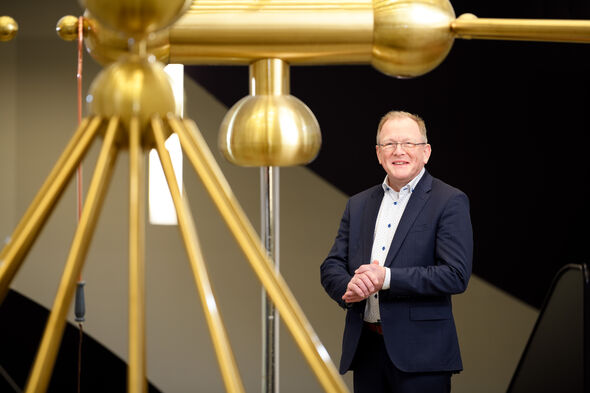
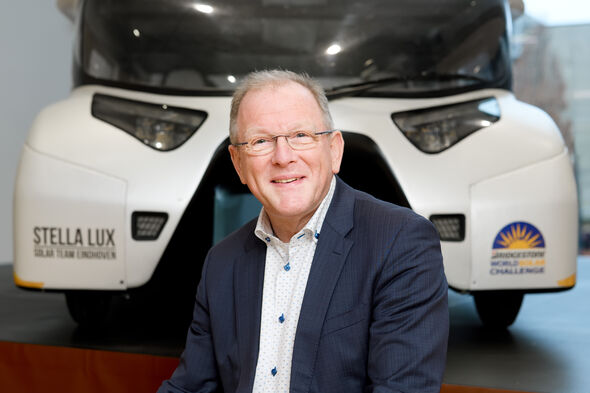
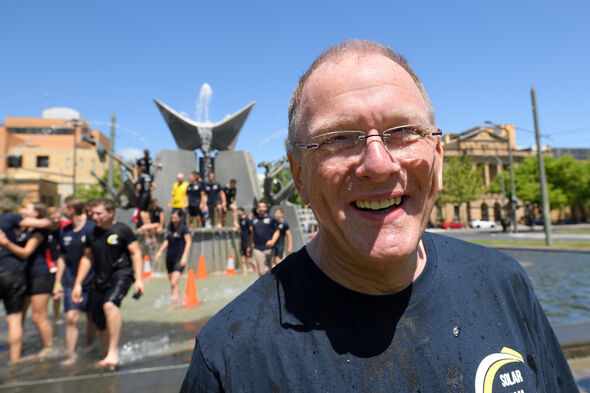
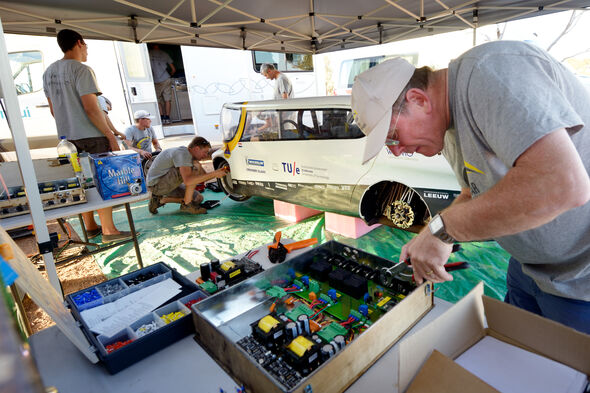
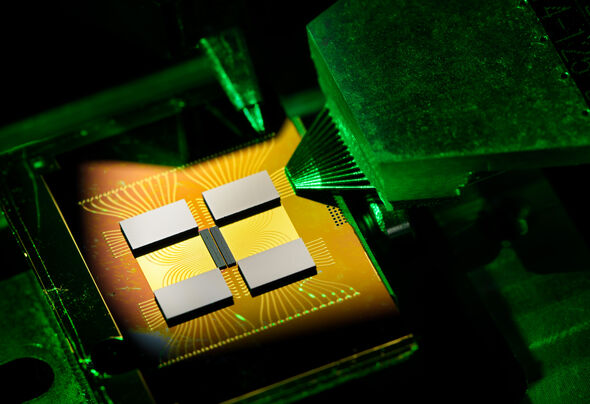
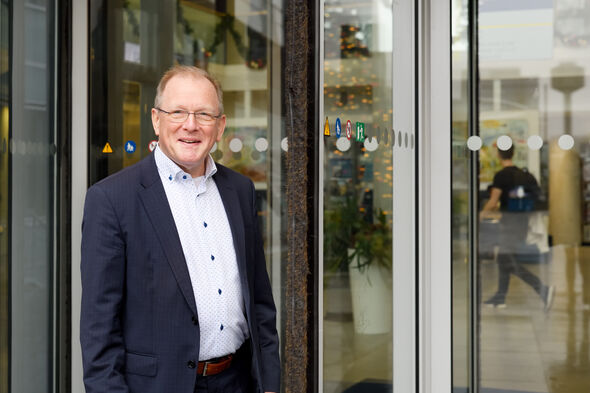
Discussion